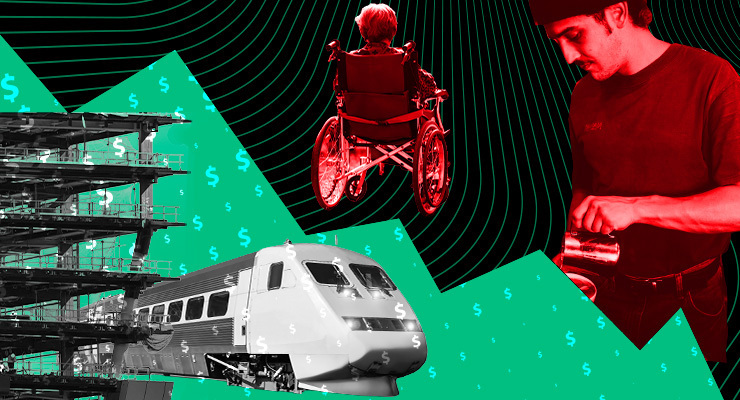
Whatever you might wish to call this budget (we toyed with “neoliberal-Keynesian”), this is a Liberal budget delivered with three clear goals in mind: ward off mass unemployment through private sector hiring; boost economic growth via broad-based tax cuts; get reelected in 18 months or so on the back of the first two.
It is a budget for and about big government. Four years out from now, government spending will still be a heroic 27% of GDP — a remarkable figure to lay at the feet of a Coalition government.
As we have noted in Crikey many times, if such figures had emanated from Labor, certain sections of the media and the commentariat would have gone nuts. But these are extraordinary times.
Josh Frydenberg’s second budget will gain marks from the right for seeking to boost business and from the middle for the tax cuts. The treasurer’s message is clear: we will give you relief (tax cuts, wage incentives, asset write-offs, etc) and now you go and spend it.
The actual success of this strategy will not be clear for some time. But by the time the next election looms, the politics will play very much in the Coalition’s favour if it is.
Of course, there are plenty of ifs (the forecast for economic growth in 2021-22 being among them), and there are plenty of losers — the unemployed aged 35 and older, older Australians in residential care, people in need of social housing, the environment and, predictably, the ABC.
This special edition of Crikey is our first take on this unprecedented budget. We will keep dissecting the budget over coming hours and days.
Thanks for reading and supporting our work.








Well aren’t we certainly in uncharted territory, with a stimulus budget that almost entirely is supply rather than demand sided.
If the economy hasn’t rebounded by June 2022 in anywhere approaching government modelling (Governments own forecast modelling predicting growth of 4.25% in 2021-22), I think we can comprehensively trash neoliberal economic theory as being bupkiss (and the Liberals being good economic managers with it).
The problem I have is that business generally will hire people without help if there is business to be done. The demand for a whole raft of services has just evaporated, and hiring people to do ‘something’ doesn’t change that. True Keynesianism, to my entirely lay understanding, would be building a business enterprise which can then employ people. Something like building infrastructure projects of suitably epic proportions, or funding a Uni or two, or doing some environmental repair, or (maybe), even building a rail line, road or dam like its 1920.